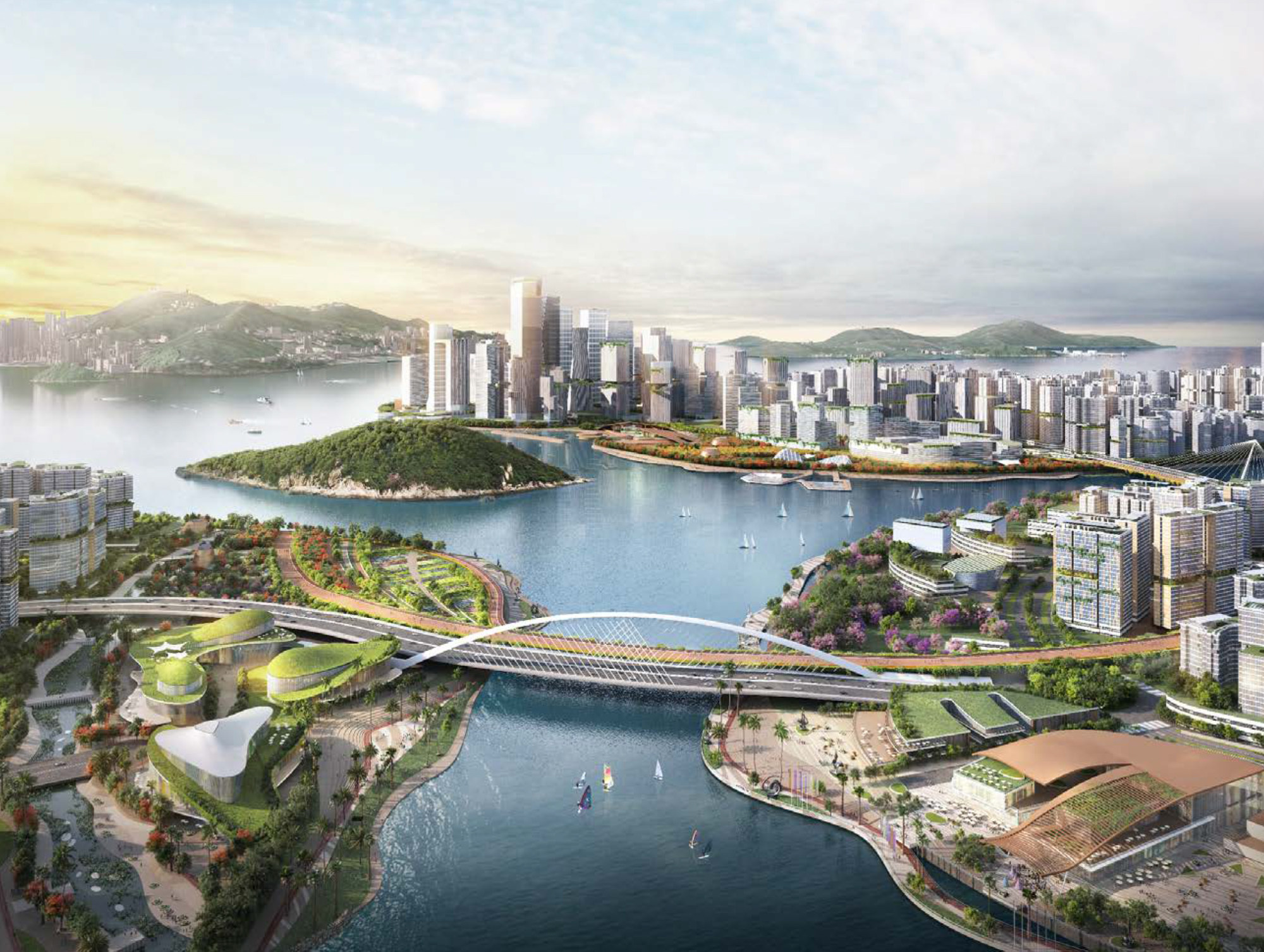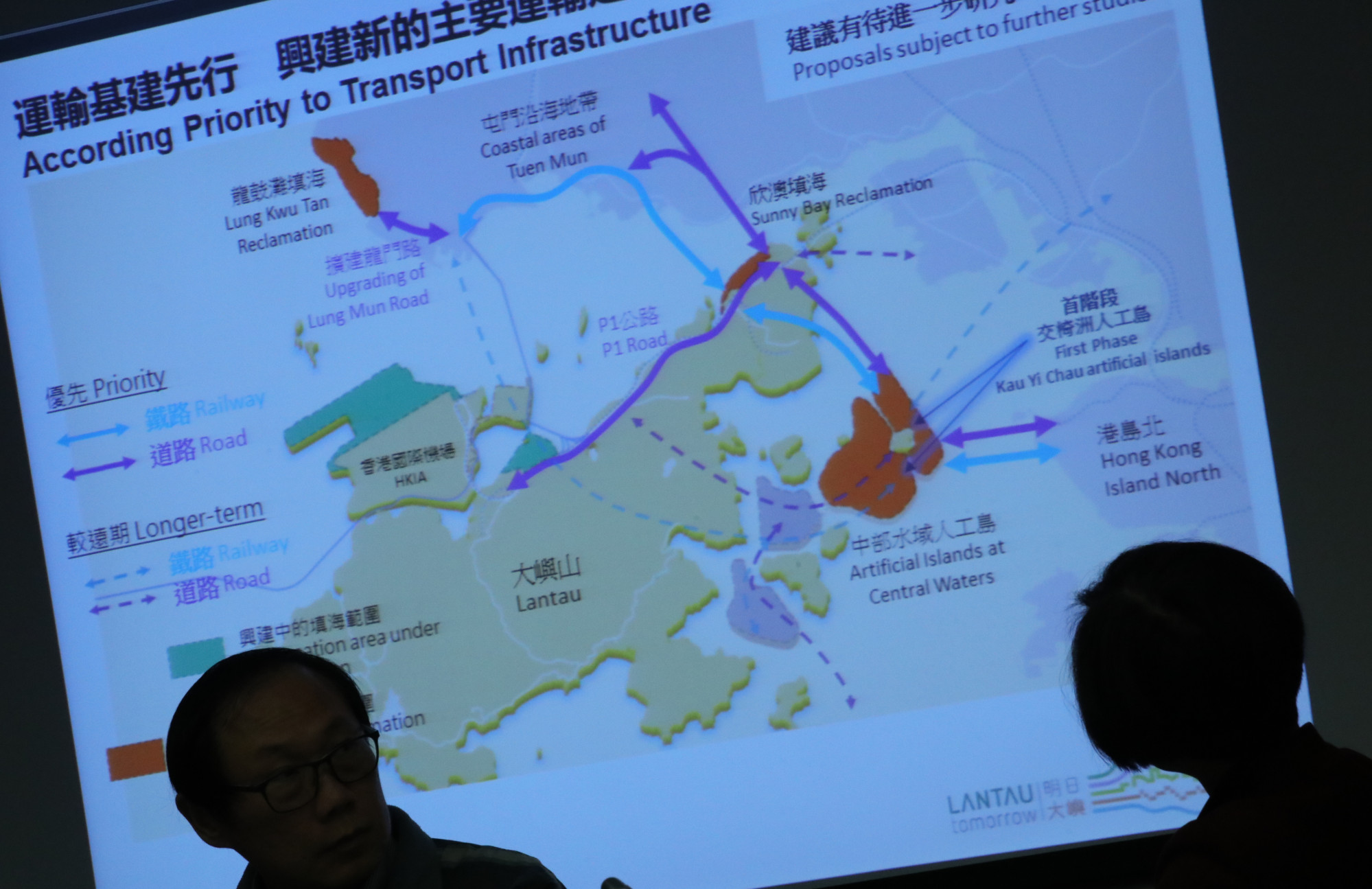[ad_1]
“Some [respondents] expressed concerns about the impact on public finance caused by the project, its cost estimate and control, and some considered the assessment of economic benefits too optimistic,” the report said.

The findings were published four months after the government wrapped up its three-month consultation, held from last December to March this year.
Among the 7,800 responses collected, nearly 60 per cent expressed support for the mega project while another 25 per cent opposed it.
Andy Kwan Cheuk-chiu, director of the ACE Centre for Business and Economic Research, on Monday said the government had to ensure its financial soundness against the backdrop of an ageing society and global economic headwinds.
“I’ve become more concerned about whether the government is financially sound now than I was in March and April,” the economist said. “Mainland China’s economic recovery is much slower than expected.
“Hong Kong has an ageing population, increasing social welfare expenditure. A decrease in the working population will also lead to a drop in tax revenue.”
Hong Kong’s artificial islands plan ‘could become financially risky, run into delays’
Hong Kong’s artificial islands plan ‘could become financially risky, run into delays’
Government figures released last week suggested that the population was ageing more rapidly than previously forecast, which would drive up the median age to an estimated 55½ years by 2046.
It also predicted that 2.74 million residents would be aged 65 or above in 2046, accounting for 36 per cent of the population, up from one-fifth in 2021.
Under the Lantau Tomorrow Vision initiative, the government plans to reclaim three islands and build up to 210,000 flats to house 550,000 people, with economic development there set to spawn a third central business district.
Despite some respondents in the public consultation being optimistic about the government’s bonds programme, others said the move might not be an “attractive financing option” due to the rise in interest rates and global financial instability.
“The uncertain return from investment and the fact that the economy would be entering a rate-hike cycle might discourage investors from purchasing infrastructure bonds,” the report warned.
Kwan also echoed that view, warning the government might also have to bear a high interest rate if it issued bonds.
Some respondents also questioned if the projected revenue was too optimistic due to the recent downturn in the property market and land values, while others were worried the cost had been underestimated since details of reclamation were still uncertain.
Hong Kong to unveil green measures later this year to offset artificial islands plan
Hong Kong to unveil green measures later this year to offset artificial islands plan
According to the report, some who had commented cited the building of the third airport runway as an example, in which the amount of bonds issued had gone beyond the initial target and interest incurred would become an enormous financial burden to the government and taxpayers.
Other financing options floated by respondents in the consultation include transforming the assets into investible securities to attract funds from the international market, turning the artificial islands into digital assets for public sale, and convincing private developers to participate in reclamation.
While respondents in general supported engaging the private sector in financing the reclamation and building infrastructure, some worried it might “weaken the government’s control on land resources” and “lead to high toll fees” for transport projects.

They called on authorities to retain control in regulating land sales and operating infrastructure, as well as conduct a long-term assessment of project revenues and expenses to determine appropriate financing options.
Economist Billy Mak Sui-choi of Baptist University agreed the government should develop a financing scheme that made the project viable and that it also had to be transparent enough to ease the public’s concerns.
But he held a more optimistic view on the project, saying the public should understand that reclamation was an investment, not one-off consumption.
“Land assets will not depreciate, just go up and down according to the prices,” he said.
Price tag for artificial islands off Hong Kong’s Lantau balloons to HK$580 billion
Price tag for artificial islands off Hong Kong’s Lantau balloons to HK$580 billion
Environmental group Greenpeace said the report did not provide specific responses to people’s queries or list all of the opinions collected during the consultation.
“Unlike previous public participation reports, which published all opinions in the attachment, the government only listed some opinions selectively, especially to amplify the voice of support,” the group said.
“Lantau Tomorrow is based on unrealistic population growth estimates. No matter how the government explains it, it will be difficult to dispel public doubts.”
[ad_2]
Source link

